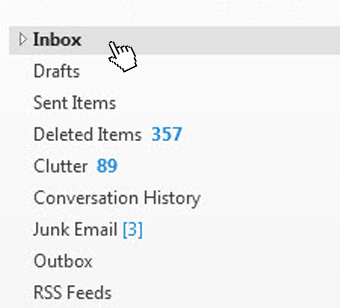
Emails have already become a primary element of business operations in nearly every industry. Keeping up with all of these correspondences has become a document management issue that must be handled before it gets too cumbersome to organize. You may be considering implementing an email retention policy to store necessary emails while deleting unnecessary ones to save storage space improve access to the emails you really need. In this blog, we’ll take a look at what an email retention policy entails.
What is an email retention policy in the first place?
When people think of storing their emails, keeping all of your emails forever probably comes to mind. This process is known as archiving. However, you probably don't need – or want – an infinite number of emails cluttering up your document storage solution. This is where email retention comes in. Instead of storing your emails indefinitely, an email retention policy puts in place a system for automatic deletion of emails based on certain conditions. It also organizes your emails for easier management.
Keep in mind that you are not the only one who decides what your minimum email retention policies will be. The federal and local governments have several regulations for email retention that you must abide by, so be sure to incorporate these into your policy as you develop it.
Does my business need an email retention policy?
Staying in line with the law
Knowing what you cannot delete under penalty of law is critical. If the government finds out that you have deleted certain emails you were supposed to keep, then your company could end up getting fined and sanctioned, and individual employees may even face legal consequences. Effective email retention policies prevent such a situation by protecting emails that you are legally required to retain as soon as they are sent or received.
Getting rid of unnecessary emails
You don't want to clutter your storage with emails that say "Thanks," "Okay," "Will do," etc. You want to retain emails containing valuable correspondences, while deleting the ones that you don't want. An email retention policy gives you a clear path for doing this.
Organizing your important emails
The average employee sends and receives about 110 emails per day. Even if you have fewer than ten employees, this will add up to over a quarter of a million emails per year. Filtering through such a voluminous archive would be trying, at best. An email retention policy will effectively organize all of your company's emails so that you can easily access them by clear categories.
Securing your emails
Many of the emails that your company sends and receives contain sensitive data. An effective email retention policy will set in place the safeguards necessary to keep your emails away from the wrong eyes.
How do I implement an email retention policy?
You want to retain valuable emails. However, sifting through the thousands of emails that you already have isn't a task that you want to leave up to human hands – unless you want to hire several new employees to do this task alone. As such, properly implementing your email retention policies will require you to invest in a digital document management system. This will give you access to the automation tools that you need to efficiently delete, organize and access your retained emails. If you already own document management software, determine whether or not it has the capabilities you need. If not, then it may be time to upgrade. Also, make sure that all of your employees are fully aware of the policy.
Don't allow email to overwhelm you
An email retention policy will enable you to protect and organize the emails you need, while discarding the ones that are in the way.

